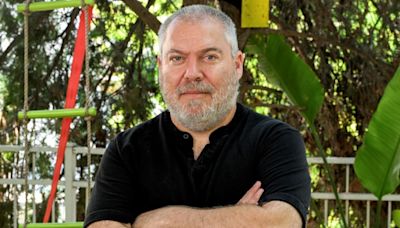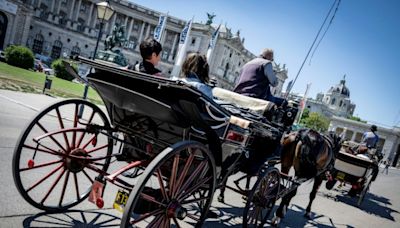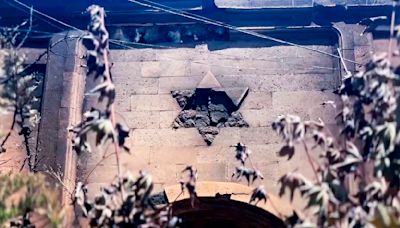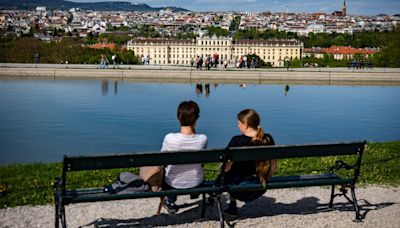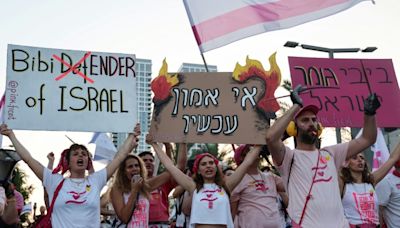Search results
Tel Aviv-Yafo (Hebrew: תֵּל אָבִיב-יָפוֹ, romanized: Tēl ʾĀvīv-Yāfō, IPA: [tel aˈviv jaˈfo]; Arabic: تَلّ أَبِيب – يَافَا, romanized: Tall ʾAbīb-Yāfā), usually referred to as just Tel Aviv, is the most populous city in the Gush Dan metropolitan area of Israel.
Discover Tel Aviv, the vibrant and cosmopolitan city on the Mediterranean coast. Find out the best things to do, see and eat, and book tours and hotels for your trip.
A youthful, modern metropolis with a diverse population, Tel Aviv dates back only to 1909. Clubs, bars, a thriving arts community, gay life and beaches attract artists, musicians and young professionals to Tel Aviv's more secular scene. Its UNESCO-designated Bauhaus architecture has won the city the moniker "The White City."
- Overview
- Character of the city
Tel Aviv–Yafo, major city and economic centre in Israel, situated on the Mediterranean coast some 40 miles (60 km) northwest of Jerusalem. Tel Aviv was founded in 1909 as a Jewish garden suburb of the ancient Mediterranean port of Jaffa (now Yafo), with which it was joined in 1950. By the beginning of the 21st century, the modern city of Tel Aviv had developed into a major economic and cultural centre. Tel Aviv is headquarters for a number of government ministries, including the Ministry of Defense, as well as other public organizations, such as the Histadrut (General Federation of Labour). Most of the foreign embassies in Israel are also located in the city. In addition, most of Israel’s large corporations are headquartered in Tel Aviv.
Tel Aviv’s rapid growth and emergence as a prominent centre was largely due to its advantageous location. Proximity to the old city of Jaffa (whose port served as the gateway to Jerusalem, farther inland) and a Jewish rural-agricultural hinterland were important in Tel Aviv’s early stages, as was its status as the first modern Jewish city in Palestine. In the mid-1930s Tel Aviv surpassed Jerusalem as the largest city in Palestine (after 1948, the State of Israel). In the mid-1970s, however, Jerusalem exceeded Tel Aviv, which continues to be the country’s second largest city. Tel Aviv forms the core of Israel’s largest metropolitan area, representing more than two-fifths of Israel’s population. Despite some decrease in its share of Israel’s population, the economic and cultural prominence of the Tel Aviv metropolitan area continue to grow. Area city, 20 square miles (52 square km); metropolitan area, 586 square miles (1,518 square km). Pop. (2008) city, 402,600; metropolitan area, 3,233,500.
Tel Aviv’s character is frequently contrasted to that of Jerusalem. Tel Aviv is depicted as the city “that never stops,” a thriving, vibrant, modern, dynamic, and multicultural city, one generally characterized as tolerant, secular, and liberal, while also materialistic and hedonistic—a city of the present, lacking deep historical roots. Jerusalem, by contrast, is seen as eternal and holy, conservative, and an arena for major conflicts within Israeli society, including that between Israelis and Palestinians. It has been said by some that “while Jerusalem prays, Tel Aviv plays.”
In the past Tel Aviv was negatively portrayed as a city that lacked character and was unpleasantly humid, ugly, and prematurely aging, with decaying buildings covered in peeling stucco and small business blocks of stained concrete. However, these representations lost much ground during the last quarter of the 20th century, partly the result of substantial beautification efforts—the most significant of which included a new orientation toward the beach, an area that had decayed for decades. Whereas past perceptions marked Tel Aviv as the stronghold of the non-pioneering segment of Israeli society, later views have come to acknowledge Tel Aviv’s importance as the engine of the Israeli economy, and its rich cultural and entertainment amenities have been increasingly appreciated. Emerging civic pride has been based on the quality of life offered in the city and its metropolitan area.
Britannica Quiz
Famous Nicknames
- Eran Razin
Tel Aviv (meaning 'Hill of Spring' in Hebrew) has an air of perpetual renewal: flowers bloom, new restaurants open and there's always a party somewhere. Attractions Must-see attractions
Discover the best sights, restaurants, entertainment, nightlife, shopping and hotels in Tel Aviv, the Mediterranean coast's vibrant city. Explore its museums, parks, beaches, markets, historical sites and cultural venues with Lonely Planet's tips and recommendations.
Go next. Tel Aviv is a huge city with several district articles that contain information about specific sights, restaurants, and accommodation. Tel Aviv (Hebrew: תל אביב, Arabic: تل أبيب) is the second largest city in Israel (after Jerusalem ), and the largest metropolitan area.
Lowest Rates. Fast & Simple. 24/7 Support. Free Cancellation. Top 10 Best Tel Aviv Hotels (2023). Most Beautiful 5 Star Luxury Hotels.
The closest thing to an exhaustive search you can find - SMH
Book The Cheapest Flight Tickets To Tel Aviv With Opodo© Today! Join Our Opodo© Prime Programm & Secure the Best Deals On Flights, Hotels and More.

